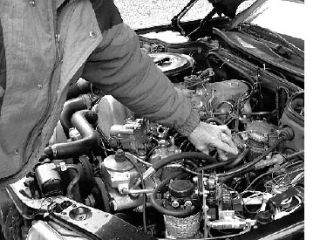When Lake Tapps resident Gary Morris needs to refuel his car, he goes no further than his own property.
Stockpiled near his house is a cache of drums containing what was once the used cooking oil from restaurants, but is now ready to power an engine.
It may be a short trip for him to fill up his tank, but the process of converting remnants of fast-food fries into fast-car oil is time-consuming and hazardous.
Morris goes to eight different restaurants collecting their used oil. It must be put through a four-stage filtration system. It goes through a series of filters and containers and is heated to at least 150 degrees on its way to becoming usable biodiesel. Morris said what makes the work dangerous is working with methanol and lye.
In spite of the effort, time and danger involved in producing his biodiesel, Morris said he is motivated by personal reasons.
“It’s my protest against foreign oil,” he said.
Morris found sources of his fuel by asking at restaurants if he could collect the leftover oil.
“I was desperate to find somebody who would let me have it,” he said.
Vegetable oil trades on the commodities list as “yellow grease” and is becoming increasingly valuable as more people lean toward the concept of alternative fuels. Some restaurants contract with rendering companies, which buy the waste vegetable oil from them. Learning of of such crimes is what led Morris to pursue the field of biodiesel. As the grease’s value rises, so does the interest in stealing it and restaurant owners are prosecuting people who filch waste vegetable oil from their property.
It was another biodiesel-related crime which led Morris to champion Washington state legislation related to biodiesel.
Morris read about cases in which people were discovered to be driving vehicles powered by biodiesel without paying the excise tax.
Morris said he called the legislative offices in Washington state and asked about ways to change the law so people could use waste vegetable oil without running the risk of being arrested.
Using legislation from an Arkansas bill as a template, he worked on a Washington state bill recognizing waste vegetable oil as being exempt from the usual motor vehicle fuel tax.
The bill was sponsored by Rep. Dan Roach, R-Bonney Lake, Rep. Christopher Hurst, D-Greenwater, and Rep. Jim McCune, from the 2nd Legislative District.
Gov. Christine Gregoire signed House Bill 3188 into law March 28 and it became effective July 1.
While this makes the use of waste vegetable oil as biodiesel tax-exempt in the state, it does not do anything to make the process of producing it or converting a vehicle to run on it easier.
Morris said powering a car on biodiesel not only requires time and patience, but also making the necessary alterations to the vehicle itself including replacing parts with a more compatible metal, although he doesn’t mind the work.
“It’s a labor of love,” he said.
Reach Chaz Holmes at cholmes@courierherald.com or 360-802-8208.


